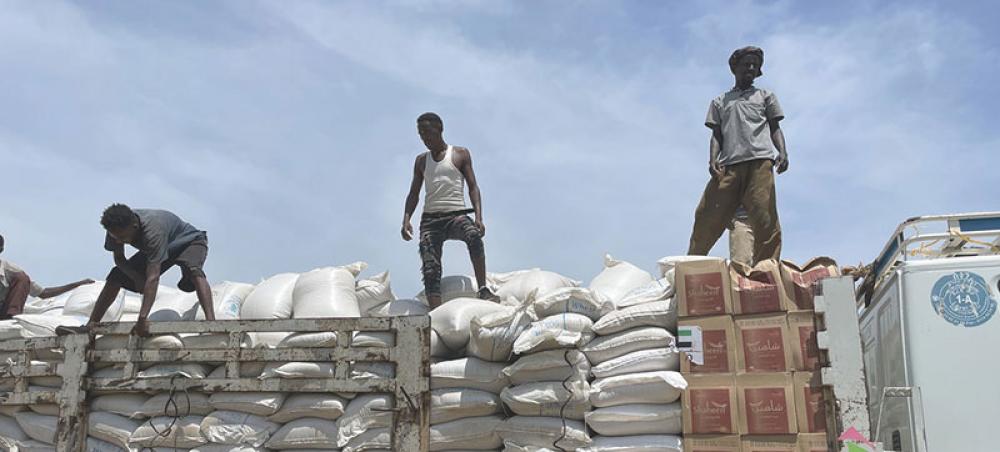Just Earth News | @justearthnews | 08 Sep 2021, 05:40 am Print
 Ethiopia
Ethiopia Image: WFP/Claire Nevill
The World Food Programme (WFP) is facing an unprecedented funding gap of $426 million for its operation in Ethiopia, as the UN agency ramps up delivery to meet the needs of up to 12 million people this year.
This month, WFP started delivering emergency assistance to communities in regions bordering war-torn Tigray. So far, the conflict has forced 300,000 people from their homes and 1.7 million into the nextdoor provinces of Afar and Amhara.
In coordination with Ethiopia’s Federal and Regional Government authorities, the goal is to reach 530,000 people in Afar and 250,000 people in Amhara. The operation will scale up as needs increase and funding is received.
In Tigray, food security continues to worsen, and WFP and its partners are struggling to scale up and meet the urgent food needs of 5.2 million people.
Stocks exhausted
Food stocks were almost entirely depleted until Monday, when the first convoy for over two weeks entered the region. Over 100 trucks carried 3,500 metric tons of food and other life-saving cargo, including fuel and health and shelter items.
WFP’s Regional Director for Eastern Africa, Michael Dunford, welcomed the collaboration from federal and local authorities to ensure the safety of the convoy.
“But much more is needed, and this momentum must be sustained otherwise we cannot hope to deliver enough food to save millions from falling deeper into hunger,” he added.
WFP will reach up to 3 million people in the region, an increase of 900,000 since it took over operations in two north-western districts, Shire town and Tahtay Koraro, from its non-governmental food partners.
“Time is running out for millions across Northern Ethiopia and if we don’t get additional funding right away we will be forced to cut rations or, even worse, halt distributions to some four million people we’re trying to reach in Afar, Amhara and Tigray in the coming months,” said Mr. Dunford.
Security and funding
Across Ethiopia, over 13.6 million people are estimated to be food insecure due to the prolonged combined effects of drought, flooding, desert locust invasions, market disruptions, high food prices, and the COVID-19 pandemic.
The situation has only been made worse by the recent conflict spreading across northern parts of the country.
WFP said it needs the extra $426 million to expand its emergency food assistance response over the next six months. The funds would also provide long-term food security solutions for people as they enter the yearly ‘hunger season’.
- Viral Irish food bank photo sparks shocking racist attacks on Indians
- Caught on camera: Two foreigners assaulted in Israel in an alleged racial attack
- Pakistan: Parents heartbroken after court sides with man accused of kidnapping minor Christian girl
- Pakistan: Trafficked 35 years ago, Bangladesh-born woman approaches court against FIA for offloading her from flight!
- Hindu tea worker found bound and bloodied in Bangladesh garden during general elections; investigation underway





-1763561110.jpg)
